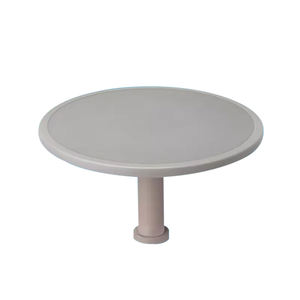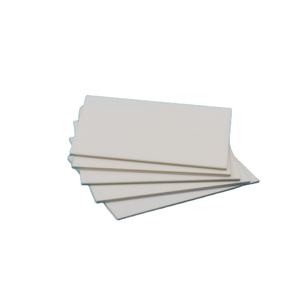Discover Premium Ceramic Products | Durability & Elegance United | Advanced Ceramics
PRODUCT PARAMETERS
Description
Overview of aluminum nitride ceramics
Aluminum Nitride Ceramic is an advanced ceramic material with aluminum nitride as the main component. It has been widely used in electronics, optics, and mechanics due to its unique properties.
Features of aluminum nitride ceramics
High thermal conductivity: Aluminum nitride ceramics have relatively high thermal conductivity, usually between 170-260 W/m·K, which makes it an excellent heat dissipation material. It is especially suitable for electronic devices that require efficient heat dissipation, such as substrate materials for power semiconductor devices.
Good electrical insulation: Despite its high thermal conductivity, aluminum nitride ceramics are excellent insulators of electricity, which can effectively prevent current leakage and ensure the safe operation of electronic components.
Low dielectric constant and dielectric loss: These characteristics make aluminum nitride ceramics very suitable for use in high-frequency circuits because it can reduce energy loss during signal transmission.
High temperature resistance: Aluminum nitride ceramics can maintain structural stability and strength at extremely high temperatures. Its melting point is about 2800°C, so it is suitable for applications in high temperature environments.
Low thermal expansion coefficient: Compared with semiconductor materials such as silicon, aluminum nitride has a lower thermal expansion coefficient, which means it has better dimensional stability when the temperature changes, which helps improve packaging reliability.
Corrosion resistance: Aluminum nitride ceramics have good chemical stability to most molten metals and are not easily oxidized or corroded, allowing them to perform well in harsh environments.
High mechanical strength: Although not as hard as some other types of ceramic materials, aluminum nitride ceramics still provide enough mechanical strength to allow them to be used in many structural applications.
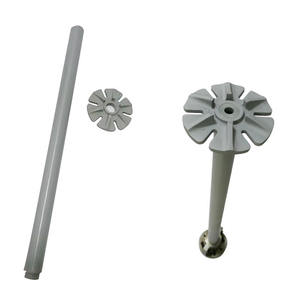
(Ultra-thin AlN Ceramic Substrate / 0.1mm Thickness Aluminum Nitride Ceramic)
Specifications of Ultra-thin AlN Ceramic Substrate / 0.1mm Thickness Aluminum Nitride Ceramic
Ultra-thin AlN ceramic substrate offers a high-performance remedy for advanced electronic devices calling for precision thermal monitoring. The substrate includes a 0.1 mm thickness, making it optimal for applications where room and weight are essential. Made from aluminum nitride, this material integrates exceptional thermal conductivity with solid electric insulation, guaranteeing dependable operation in demanding atmospheres.
The substrate measures 0.1 mm close limited tolerance control, preserving consistency across batches. Surface roughness is optimized for smooth metallization, making it possible for solid bonding with conductive layers. Thermal conductivity reaches 170-180 W/mK, outmatching lots of conventional porcelains. This permits reliable heat dissipation, decreasing the threat of overheating in high-power gadgets. Electric insulation goes beyond 15 kV/mm, avoiding leakage currents and enhancing safety and security.
Light weight aluminum nitride’s thermal expansion coefficient carefully matches products like silicon, lessening anxiety during temperature adjustments. This compatibility boosts longevity in thermal cycling conditions. The substratum operates dependably in temperatures from -50 ° C to 350 ° C, ideal for aerospace, auto, and commercial systems.
The ultra-thin layout sustains miniaturization without endangering efficiency. It is compatible with thin-film circuits, power modules, and LED packaging. The material withstands chemical deterioration and mechanical wear, ensuring lasting stability. Personalized shapes and sizes are offered to satisfy specific design needs.
Applications include high-frequency interaction gadgets, laser diodes, and semiconductor air conditioning systems. In LED technology, the substratum boosts light result by efficiently transferring warm from chips. For power electronic devices, it makes it possible for compact designs with greater power density. RF parts benefit from low signal loss and stable dielectric buildings.
Handling methods like laser cutting and display printing are supported for precise fabrication. The substrate is RoHS-compliant and devoid of harmful substances, meeting global ecological requirements. Packaging choices ensure defense throughout delivery and handling.
This AlN ceramic substratum addresses the growing demand for products that stabilize thermal performance, electric dependability, and portable type variables. It is a functional choice for designers creating next-generation electronics needing reliable heat management and space-saving services.
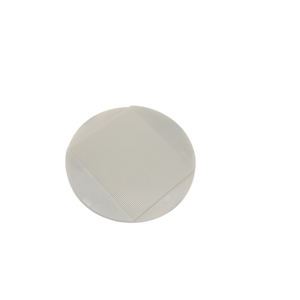
(Ultra-thin AlN Ceramic Substrate / 0.1mm Thickness Aluminum Nitride Ceramic)
Applications of Ultra-thin AlN Ceramic Substrate / 0.1mm Thickness Aluminum Nitride Ceramic
Ultra-thin light weight aluminum nitride (AlN) ceramic substratums with 0.1 mm density are advanced products developed for high-performance applications. These substratums integrate outstanding thermal conductivity with electrical insulation. Their ultra-slim profile enables assimilation into small gadgets without giving up performance. AlN porcelains deal with severe temperature levels. They stand up to thermal shock. This makes them excellent for settings where warm administration is critical.
The electronic devices market benefits greatly from these substratums. They are utilized in high-power LED lights systems. The material effectively transfers warmth from LED chips. This prolongs tool lifespan. It additionally keeps brightness gradually. Semiconductor packaging depends on AlN substratums for warmth dissipation. They stop overheating in microprocessors and power modules. This makes certain steady operation in computers, web servers, and electrical lorries.
5G modern technology utilizes ultra-thin AlN substrates in radio frequency (RF) parts. The reduced signal loss and high thermal conductivity assistance faster information transmission. They help take care of warm in base terminals and interaction devices. This improves network dependability. Aerospace applications consist of radar systems and satellite communications. The substratums withstand severe problems. They carry out consistently under high resonance and temperature level variations.
Automotive systems utilize AlN ceramics in electric car power converters. The slim design saves space in battery monitoring systems. It enhances power efficiency. The product’s insulation avoids electric failings. Medical tools like laser diodes use these substrates for accuracy warm control. They make certain exact efficiency in medical devices and analysis devices.
Renewable resource systems integrate AlN substratums in solar inverters and wind generator controls. The material’s longevity minimizes maintenance needs. It supports long-term procedure in outdoor setups. Industrial lasers use the substrates to manage heat in reducing and welding devices. This boosts handling rate and precision.
Ultra-thin AlN ceramic substratums use reliability across sectors. They address difficulties in miniaturization and thermal monitoring. Their versatility makes them vital for next-generation technologies.
Company Introduction
Advanced Ceramics founded on October 17, 2014, is a high-tech enterprise committed to the research and development, production, processing, sales and technical services of ceramic relative materials and products.. Since its establishment in 2014, the company has been committed to providing customers with the best products and services, and has become a leader in the industry through continuous technological innovation and strict quality management.
Our products includes but not limited to Silicon carbide ceramic products, Boron Carbide Ceramic Products, Boron Nitride Ceramic Products, Silicon Carbide Ceramic Products, Silicon Nitride Ceramic Products, Zirconium Dioxide Ceramic Products, Quartz Products, etc. Please feel free to contact us.(nanotrun@yahoo.com)

Payment Methods
T/T, Western Union, Paypal, Credit Card etc.
Shipment Methods
By air, by sea, by express, as customers request.

5 FAQs of Ultra-thin AlN Ceramic Substrate / 0.1mm Thickness Aluminum Nitride Ceramic
What is an Ultra-thin AlN Ceramic Substrate? An Ultra-thin AlN Ceramic Substrate is a material made from aluminum nitride. It is used in electronics for electrical insulation and heat management. The 0.1mm thickness makes it ideal for applications needing slim components without sacrificing performance. It is durable and handles high temperatures better than many materials.
Why is the 0.1mm thickness important? The 0.1mm thickness allows the substrate to fit into compact devices. It reduces weight and saves space in designs. This thinness does not compromise strength or thermal performance. It works well in tight spaces where thicker materials cannot.
Where is this substrate commonly used? It is used in high-power electronics like LED lighting and semiconductor modules. It appears in RF devices, aerospace systems, and electric vehicles. The thin design suits applications needing efficient heat dissipation in small areas. It is also chosen for high-frequency circuits due to stable electrical properties.
How does it manage heat so effectively? Aluminum nitride naturally moves heat well. The 0.1mm thickness speeds up heat transfer from hot components to cooler areas. This prevents overheating and improves device reliability. Its thermal expansion matches materials like silicon, reducing stress in temperature changes.
How should the substrate be handled during installation? Handle it gently to avoid cracks. Use tools designed for fragile materials. Clean surfaces before bonding to ensure strong adhesion. Follow manufacturer guidelines for mounting pressure and temperature limits. Store it in a dry environment to prevent moisture damage.
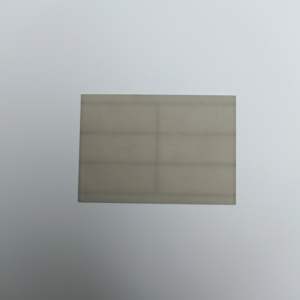
(Ultra-thin AlN Ceramic Substrate / 0.1mm Thickness Aluminum Nitride Ceramic)
REQUEST A QUOTE
RELATED PRODUCTS
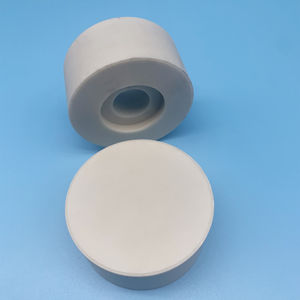
Custom Sheet and Special Shape Aln Aluminum Nitride Ceramic Components Structural Parts
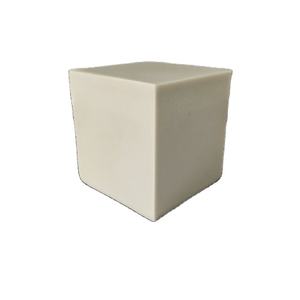
High Quality 99.9% 90-120um Aluminum Nitride Powder AlN Powder for Ceramics and Semiconductor CAS 24304-00-5
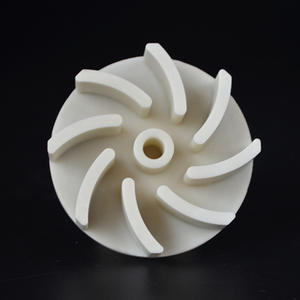
High Quality 99.7% 0.72um Aluminum Nitride Powder AlN Powder for Ceramics and Semiconductor CAS 24304-00-5
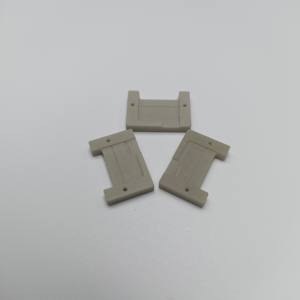
AlN Aluminum Nitride Ceramic Sheet Industrial Parts Aluminum Nitride Ceramic Heater
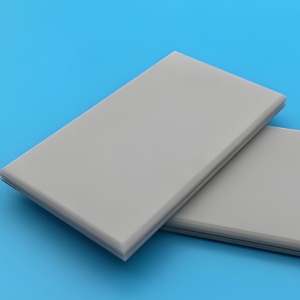
Electrical Insulation AlN Aluminium Nitride Ceramic Plate
